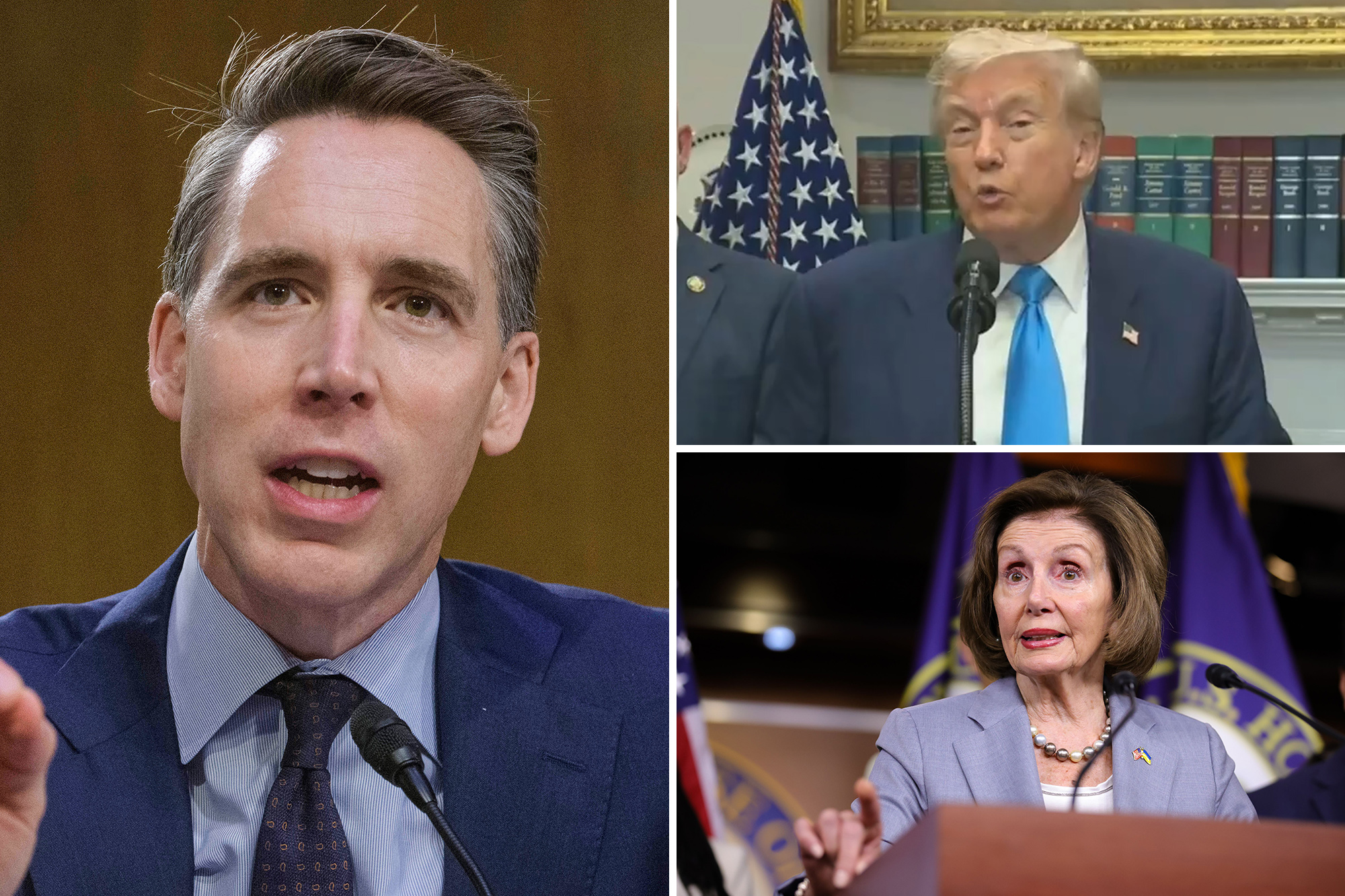A significant political skirmish has erupted between former President Donald Trump and Senator Josh Hawley, stemming from Hawley’s proposed ban on congressional stock trading, known as the Preventing Elected Leaders from Owning Securities and Investments (PELOSI) Act. This legislative push, aimed at enhancing transparency in government, has unexpectedly ignited a fiery debate within the Republican party, challenging party unity on a key policy initiative.
Senator Hawley’s PELOSI Act recently achieved a crucial milestone, clearing the Senate Homeland Security and Governmental Affairs Committee with a narrow 8–7 vote. Notably, this bipartisan success saw the Missouri Republican align with all Democrats on the committee, underscoring the cross-aisle appeal of the proposed Congressional Stock Ban. The bill seeks to restrict lawmakers from owning or trading individual stocks, a measure designed to mitigate potential conflicts of interest and restore public trust in political leadership.
In a sharp rebuke, Donald Trump lashed out at Senator Hawley, publicly accusing him of enabling Democrats to undermine his own political standing. Trump characterized Hawley’s actions as “sabotage,” suggesting that the senator, whom Trump claims to have helped elect twice, was being manipulated as a “pawn” by Democrats aiming to target the former president due to his past “achievements and success.” This strong condemnation from Trump immediately thrust the issue into the spotlight, creating a major point of contention in US Politics.
Trump further articulated his disdain, stating, “I don’t think real Republicans want to see their President, who has had unprecedented success, TARGETED, because of the ‘whims’ of a second-tier Senator named Josh Hawley!” This statement underscored a perceived betrayal of party loyalty and strategy, framing the legislative effort as a personal attack rather than a principled stand on the ethics of political legislation.
The committee hearing itself witnessed palpable tension, particularly between Senator Hawley and Senator Rick Scott, a prominent ally of Donald Trump. Senator Scott vehemently argued against the bill’s approach, asserting that “This idea that we are going to attack people because they make money is absolutely wrong.” While Scott conceded the necessity of curbing stock trading by officials, he maintained that the PELOSI Act, in its current form, was “way different” and misguided, highlighting the internal divisions within the GOP on this critical reform.
The specifics of the PELOSI Act stipulate that lawmakers, including the president and vice president, would be subject to the trading ban. However, the bill incorporates a phase-in period, a provision designed to ensure that neither Donald Trump nor Vice President JD Vance would be immediately impacted by its restrictions. This detail became a point of contention for Trump, who later used it to further question Hawley’s motivations and the bill’s true intent, especially considering its implications for the broader framework of a Congressional Stock Ban.
Hours after the committee vote, Trump intensified his criticisms on Truth Social, questioning Hawley’s motives. “I wonder why Hawley would pass a Bill that Nancy Pelosi is in absolute love with — He is playing right into the dirty hands of the Democrats,” Trump fumed, tying the PELOSI Act to former Speaker Nancy Pelosi’s past financial activities and suggesting a collusive agenda. He also queried why Hawley would “join with all of the Democrats to block a Review, sponsored by Senator Rick Scott,” implying a deliberate obstruction of efforts to scrutinize Pelosi’s trading history.
Interestingly, Trump had previously expressed a more open-minded, albeit cautious, stance on the concept of a stock trading ban. Earlier on Wednesday, he told reporters, “I like it conceptually and you know Nancy Pelosi became rich by having inside information. She made a fortune with her husband, and I think that’s disgraceful.” He indicated a willingness to “take a look at it,” suggesting his initial concerns were more about the details and potential implications for figures like Pelosi, rather than an outright rejection of the core idea of political legislation for stock ethics.
Despite Trump’s escalating attacks, Senator Hawley remained steadfast in his position, brushing aside the criticisms. He reiterated his belief that “Pelosi should not just be investigated, but prosecuted. Needs to be illegal. You shouldn’t be able to get rich by trading on information that only you have,” reinforcing his commitment to comprehensive reform and accountability within the government, further deepening the rift surrounding the Congressional Stock Ban and the broader landscape of US Politics.






Leave a Reply